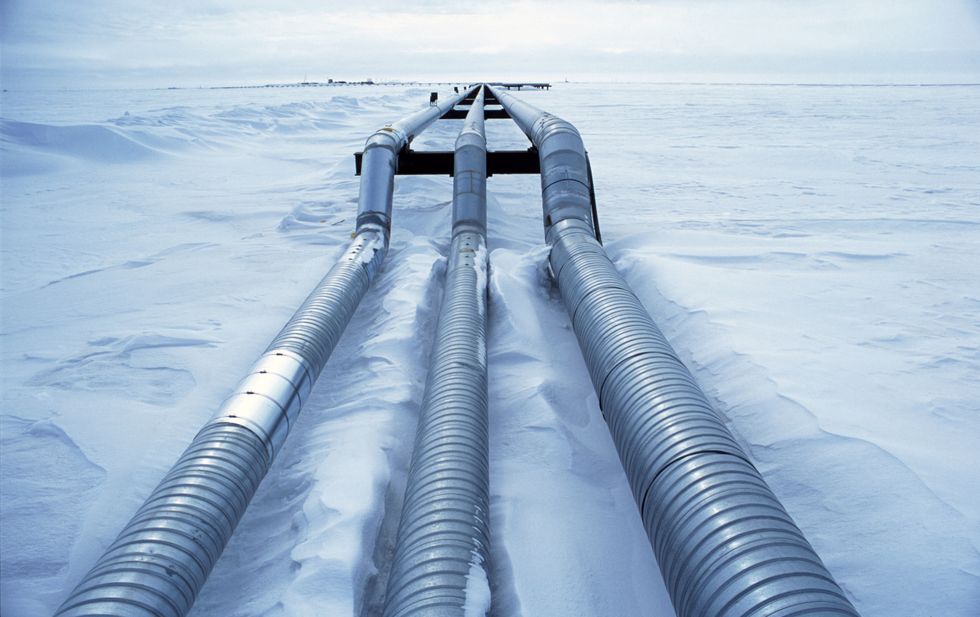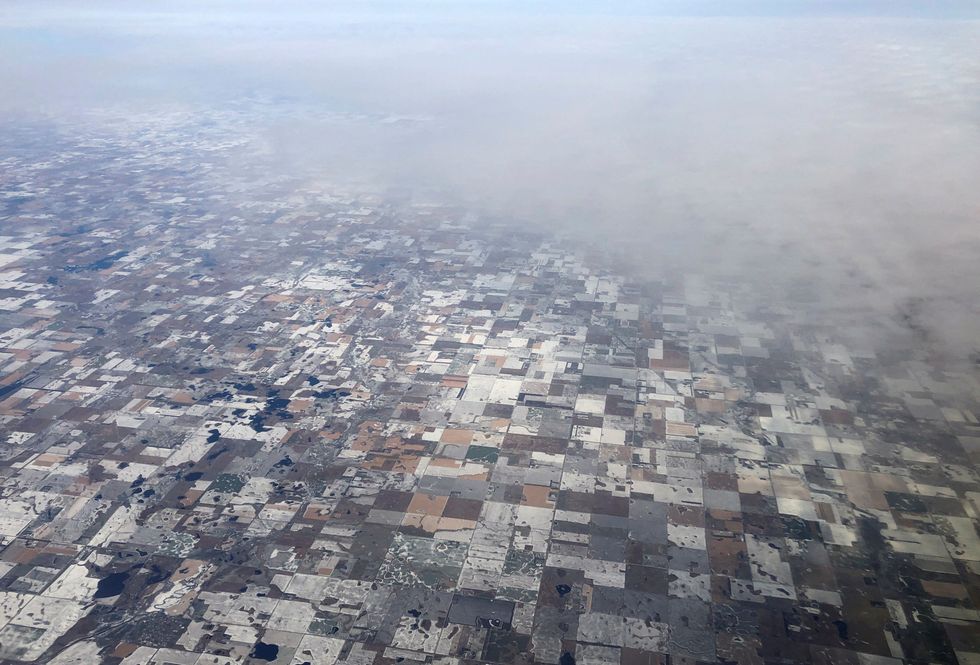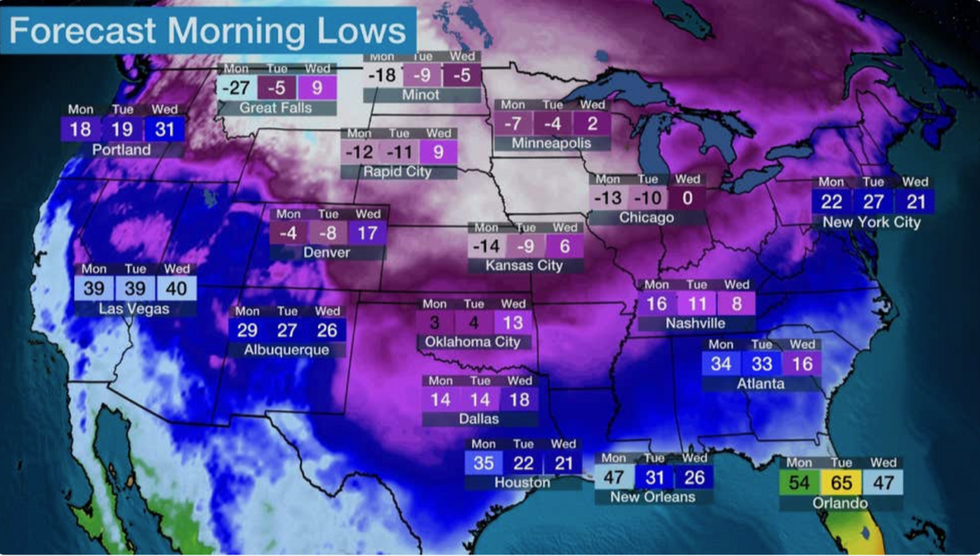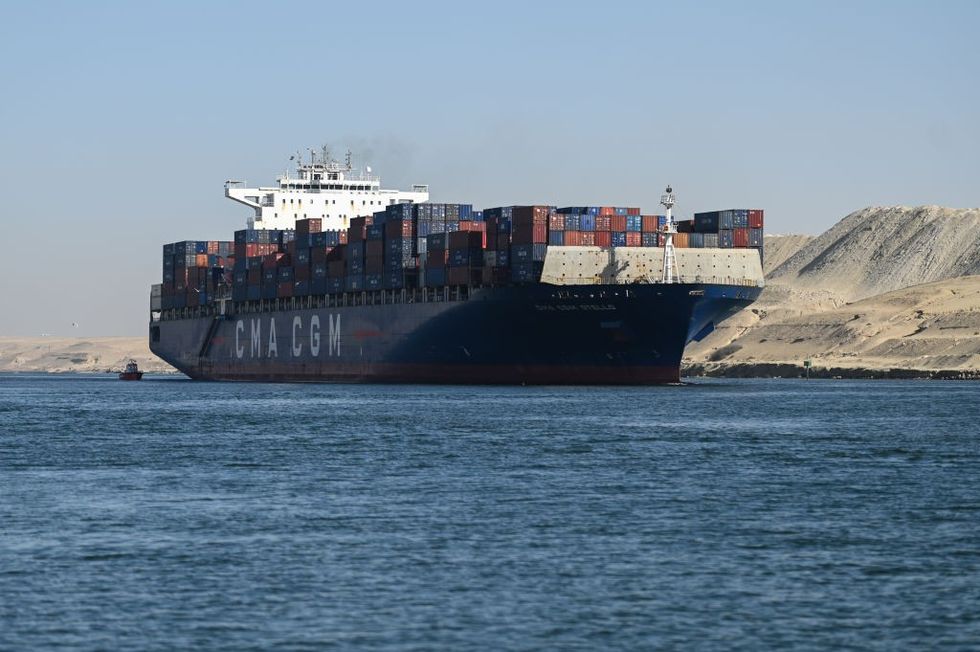US oil to see ‘upward pressure on prices’ as devastating Arctic blast stalls production

WATCH HERE: Petrol prices at the pump with Lisa Hartle
|GB News

GB News understands cold weather both reduces production and increases demand
Don't Miss
Most Read
US oil prices could see “upward pressure” applied to them following an estimated drop of 700,000 barrels per day in North Dakota oil production due to severe cold weather.
An extreme temperature drop in the region caused production to stall yesterday and put a limit on the amount of oil produced, the state’s pipeline authority explained.
Production, which normally stands at 1.27 million barrels per day, was cut by over half as wind chill drove the mercury to a bone-chilling -56C in the town of Dickinson.
There are currently three types of weather warning in place for the third largest oil-producing US state encompassing wind chill, hazardous and winter weather.

Cold weather has stalled oil production in North Dakota
|Getty Images
Natural gas output is also expected to be down by 1.7 billion cubic feet per day in the state.
EJ Antoni, a US research fellow at The Heritage Foundation told GB News that although stockpiles would be enough to ride out temporary interruptions, there would likely be an increase in oil prices.
“The severe cold is simultaneously reducing supply and increasing demand as home heating oil use soars,” Antoni said. “That combination puts upward pressure on prices.
“However, the reduction in supply is relatively small, both compared to total domestic production and stockpiles.
“Even with the strategic petroleum reserve being depleted, private stockpiles are still sufficient to ride out temporary interruptions from things like severe cold snaps.”
US LATEST:
Snow-covered fields in South Dakota
|Reuters
Cold weather warnings are also in place over Montana, Idaho and Washington, together with five Canadian provinces.
GB News' Weather Correspondent Nathan Rao explained how Arctic air from the north has been driven over the country, driving temperatures down in several areas.
“Swathes of the United States have been hit by a severe Arctic blast which have been compounded by winter storms, most recently Storms Heather and Indigo,” Rao said.
“This has brought not only significant snow and near record-low temperatures, but strong winds blizzards, ice and freezing rain.
“Arctic air sweeping down over Canada and into the United States has engulfed almost the whole country, and while there is likely to be a brief respite during the middle of the week, the cold is expected to return at the weekend.
“So, we can expect severe winter weather to affect the United States into the weekend, and very likely beyond.”

Arctic plume over North America
|The Weather Channel
Crude oil prices at US West Texas Intermediate (WTI) fell by more than a dollar on Wednesday as markets continue to deal with a period of uncertainty caused by the crisis in the Middle East.
Repeated missile and drone strikes in the Red Sea by Yemeni Houthi rebels have caused oil prices to surge in recent weeks rising by more than 2.5 per cent to $72 per barrel.
However, prices are much diminished since September last year, when they peaked at $94 per barrel.
Owing to increased tensions in the area, several oil companies, including Shell, have opted to avoid the Red Sea transit, instead choosing to sail south and around the Cape of Good Hope and adding days to their voyages.
Despite the potential increase in crude oil prices, experts have speculated that customers at the pump are not likely to be affected.

Ships are being diverted from the vital Red Sea trading route
| GETTYContinuing to explain how cold weather conditions could affect other energy and oil production methods, Antoni continued to warn that overreliance on renewables could be an issue.
“Other extraction operations could face similar problems without the same severe cold temperatures,” Antoni warned.
“When Texas experienced unusually cold weather in 2021, its electrical grid lost power due to overreliance on wind and solar, crippling most extraction operations, even though temperatures were not nearly as cold as those in the Dakotas at that same time.
“Because Texas still relies heavily on inconsistent wind and solar, a repeat of that event is still possible.
“While lower production was forecast to drain reserves, demand has been unexpectedly weak, in part because the manufacturing sector is already contracting. That’s a common occurrence when an economy is entering a recession.”










